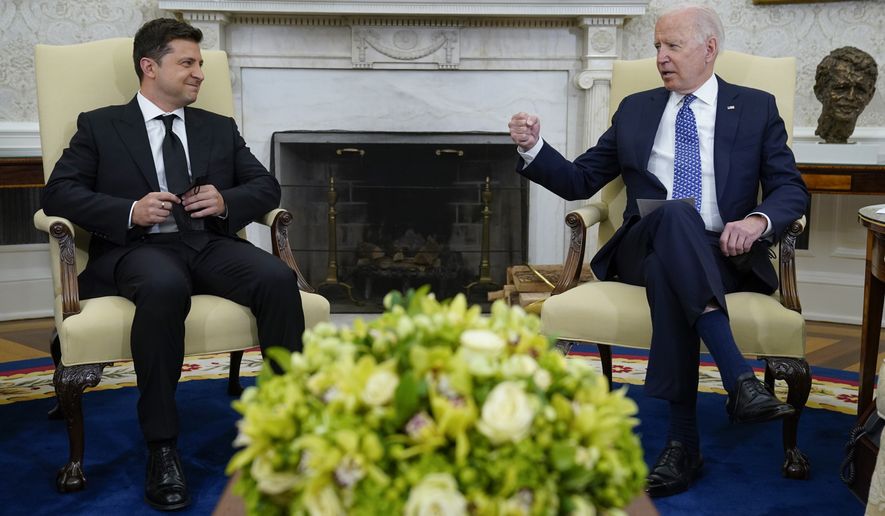OPINION:
Following Ukrainian President Zelensky’s meeting with President Biden in Washington last week, the White House issued a Joint Statement on the U.S.-Ukraine Strategic Partnership. In addition to security, energy, and economic issues, this partnership espouses reforms in the areas of democracy, justice, and human rights.
All well and good, but how can Ukraine “continue to advance respect for human rights, civil liberties, and fundamental freedoms” while the Ukrainian Parliament has passed a spate of recent legislation which radically reverses the human rights of ethnic minorities, especially in the areas of education and language use?
Although the real target of this legislation is the Russian-speaking population in eastern Ukraine, other ethnic groups − Bulgarian, Hungarian, Polish, and Romanian − are suffering the collateral damage from Ukraine’s crackdown on minority rights.
Among these communities, the most well-organized minority are the 150,000 ethnic Hungarians in the region of Subcarpathia (western Ukraine). In addition to recent legal measures restricting native-language use, the Hungarians are repeatedly subjected to physical attack and hate speech which identifies this minority as “enemies of the state.”
How can Ukraine vow to “strengthen accountability for violence against all persons regardless of gender, race, ethnicity…” yet fail to prosecute perpetrators of these ethnically based attacks and hate campaigns?
The many U.S. stakeholders in our strategic partnership with Ukraine - especially Congress - must send a clear message that Ukraine’s failure to ensure the physical and cultural survival of ethnic minorities is unacceptable and incompatible with democratic reform.
Finding a solution that respects both universal principles and Ukraine’s current security issues is a complex problem. But there are specific, good-faith steps the Ukrainian authorities can take now to demonstrate their commitment to fundamental human rights:
- Drop all current charges against Hungarian minority leaders and cease endless “investigation” of bogus corruption and “separatist” claims;
- Remove the extremist Myrotvorets website, with clear ties to the government, that targets leaders of ethnic minorities, EU officials;
- Fully implement the recommendations of NATO, Council of Europe, Venice Commission, and the European Union regarding Ukraine’s latest restrictions in laws on Education and the State Language;
- Adopt the proposed revisions submitted by the ethnic Hungarian community to the new draft law on national communities.
Protection of linguistic rights for national minorities is nothing extraordinary; these protections are well-established in international agreements to which Ukraine is a signatory.
László Brenzovics, President of the Cultural Alliance of Hungarians in Subcarpathia, wrote to President Zelensky in an open letter on September 1: “national minorities in Ukraine are not new arrivals; this region has been our home for more than a thousand years. As Hungarians in Subcarpathia, we do not want special or privileged treatment. We do not want to be labeled as enemies of the state; we have always been loyal to Ukraine. We only want to be recognized as the indigenous national minority we are; to preserve our language and cultural identity, and to work together with the majority population as equals to ensure a successful future for Ukraine.”
Ukraine is fighting the wrong war - instead of negotiating a closer partnership with NATO, it is alienating its regional neighbors, just when it needs them the most, by implementing discriminatory policies against ethnic minorities.
President Biden has rightly emphasized that promoting human rights will help restore America’s standing in the world. While the U.S.-Ukraine relationship involves many thorny issues, minority rights are one issue that all sides can and must support. Democracy in Ukraine cannot prevail without fully implementing legal protections for ethnic minorities.
Let’s not fail to raise our voice for democracy in Ukraine.
• Emese Latkoczy is Executive Director of the Hungarian Human Right Foundation, a New York-based NGO which since 1976 has monitored the rights of ethnic Hungarians who live in East Central Europe.




Please read our comment policy before commenting.